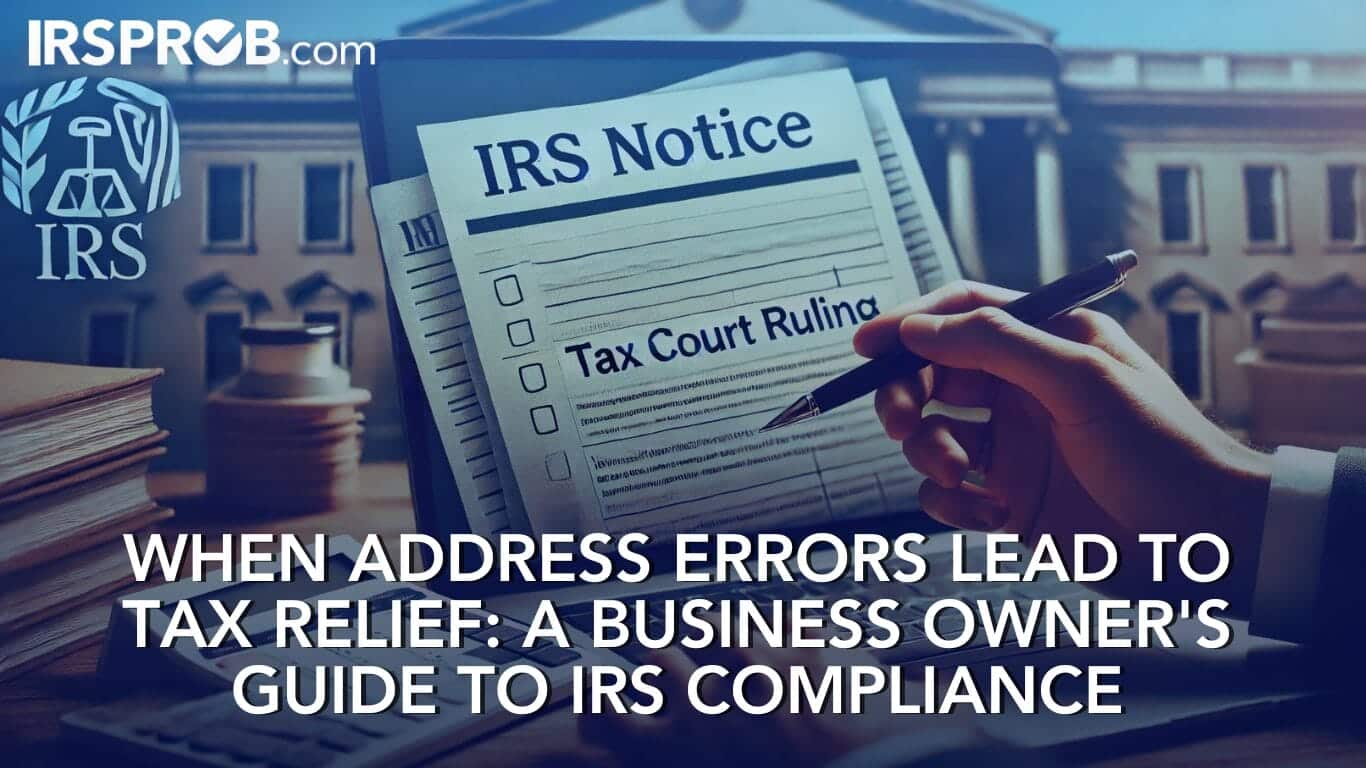
The recent Tax Court ruling in favor of Keith Phillips serves as a powerful reminder of the importance of the IRS following proper procedures when issuing deficiency notices. The court’s decision to dismiss the IRS’s case against Phillips, citing the failure to mail the notice to his last known address, highlights critical compliance requirements that every business owner should understand.
Understanding the “Last Known Address” Rule
The IRS is required by law to send deficiency notices to a taxpayer’s “last known address.” This rule is outlined in the IRS regulations, specifically Regs. Sec. 301.6212-2. The address on record is crucial because it determines whether the taxpayer receives proper notice of any deficiencies or actions the IRS intends to take.
For business owners, maintaining accurate and up-to-date address records with the IRS is essential. Whether due to a change of location, business restructuring, or other reasons, failure to notify the IRS of an address change can lead to significant legal and financial complications.
The Case of Keith Phillips: A Breakdown
In the Phillips case, the IRS attempted to collect over $75,000 in taxes and penalties, claiming that Phillips failed to report a personal injury settlement as income for the 2014 tax year. The notice of deficiency was sent to an address that Phillips claimed he never lived at. When the Tax Court reviewed the case, it found that the IRS did not adequately prove that it had complied with the necessary procedures to update Phillips’s address based on the U.S. Postal Service’s National Change of Address (NCOA) database.
The Tax Court’s ruling centered on three key points:
- Initial Burden on the IRS: The IRS must demonstrate that it mailed the notice of deficiency to the taxpayer’s last known address. In Phillips’s case, the IRS relied on a presumption that it had updated the address correctly using the NCOA database, but failed to provide sufficient evidence.
- Taxpayer’s Rebuttal: Phillips successfully rebutted the IRS’s presumption by providing evidence that he never lived at the address in question. He highlighted inconsistencies in the IRS’s records and pointed out that he was incarcerated during the time the IRS claimed the address change occurred.
- IRS’s Failure to Prove Compliance: The IRS’s evidence, primarily consisting of transcripts from its Integrated Data Retrieval System (IDRS), was deemed insufficient and inconsistent by the court. The lack of reliable documentation led the court to conclude that the notice was not sent to Phillips’s last known address, rendering it invalid.
Implications for Business Owners
The Phillips case underscores the critical importance of ensuring that your business address is accurately reflected in IRS records. Failure to receive a deficiency notice because it was sent to an outdated address could result in missed deadlines, default judgments, and unnecessary legal battles.
Here are key takeaways for business owners:
- Keep Your Address Up-to-Date: Always inform the IRS of any changes to your business or personal address. Use Form 8822-B, Change of Address or Responsible Party – Business, to update your records promptly. This form ensures that the IRS’s records reflect your current location, reducing the risk of missed communications.
- Verify IRS Notices: If you receive a notice from the IRS that seems inaccurate or is sent to an incorrect address, respond immediately. Verify the details and address any discrepancies before they escalate into more significant issues.
- Understand Your Rights: As a taxpayer, you have the right to challenge the validity of any IRS notice that is not properly issued. The burden initially lies with the IRS to prove that it followed the correct procedures. If you believe the notice was sent to an incorrect address, you can dispute it, as Phillips did, and potentially have it dismissed.
- Seek Professional Guidance: Navigating tax disputes with the IRS can be complex. Engaging a tax professional can help you understand your rights, prepare your case, and ensure that your interests are protected.
Final Thoughts
While the Phillips case resulted in a dismissal due to the IRS’s failure to follow proper procedures, it’s important to note that the IRS can still reissue the notice to the correct address. For business owners, this case serves as a cautionary tale and emphasizes the importance of diligent record-keeping and timely communication with the IRS.
By staying proactive in maintaining accurate address records and promptly addressing any IRS communications, you can minimize the risk of costly tax disputes and ensure that your business remains compliant with all tax obligations.







